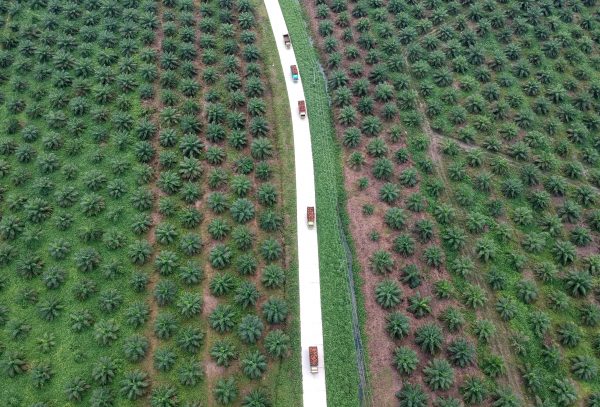While this may seem like a noble endeavour, a more cynical view might suggest that this is a veiled protectionist measure. The European Union may be attempting to benefit from trade advantages by setting barriers to entry for products from countries that cannot easily comply with the new regulation, such as palm oil from developing countries. This will make it easier for European producers of alternative goods, such as sunflower oil, to dominate the market — both domestically and internationally.
The EUDR will hinder imports of products that have been accused of contributing to deforestation, such as palm oil, which will bruise Indonesia’s economy. The palm oil industry contributes approximately 3.5 per cent of Indonesia’s GDP and provided employment to 4.3 million people in 2021. This number only includes farmers working directly on palm oil plantations and excludes the indirect contribution of the palm oil sector, which is estimated to encompass around 12 million people.
The EUDR will particularly hurt smallholders due to their limited capacity to comply with the regulation. Smallholders play an important role in Indonesia’s palm oil sector, contributing more than 34 per cent of the country’s total palm oil output in 2021. But despite their critical role in palm oil production, smallholders have a lot on their plates. In an industry dominated by larger corporate groups, smallholders have limited bargaining power and capital to participate fully in the palm oil supply chain. As a result, they often sell their fresh fruit bunches at prices below regulated rates.
The EUDR could make their already difficult situation even worse. The EUDR mandates that companies conduct rigorous due diligence to ensure that their products have not contributed to deforestation or degradation. Smallholders may struggle to meet these requirements due to a lack of resources and technical knowhow. Additional administrative and compliance costs could further burden smallholders.
Smallholders may be disproportionately subjected to the ‘effective, proportionate and dissuasive penalties’, cited in clause 74 of the EUDR. In the long run, this may further reduce their ability to participate in the palm oil market, further increasing the dominance of large corporations.
The Union of Palm Oil Smallholders argues that larger companies unfairly accuse smallholders of deforestation while providing them little support. It claims that official data overstates the land area under smallholders based on analysis of satellite imagery by civil society organisations, and that a much smaller portion of smallholders are involved in deforestation compared to larger plantations.
Indonesia and Malaysia have agreed to form a Joint Task Force with the European Commission to address concerns about the impact of the EUDR, particularly on small-scale farmers. While this is a positive first step, the task force needs to address the structural challenges within the industry to achieve palm oil sustainability among smallholders.
For example, the task force could provide guidance, training and access to resources to smallholders, leveraging their existing infrastructure and knowledge to comply with the EUDR. It could also partner with established organisations working on sustainable agriculture and rural development to help bridge gaps in expertise and resources.
The task force should also push more farmers to get registered as suppliers so that companies can easily trace their supplies while farmers receive better prices, incentives and training programs from the government and companies. Implementing a transparent and accessible dispute resolution process while fostering active engagement between industry stakeholders and smallholders would also help facilitate the effective resolution of concerns and reduce compliance burdens under the EUDR.
Assisting smallholders in meeting EUDR standards is financially feasible for large palm oil firms. One study indicated that traceability support would cost up to 3.5 per cent of a company’s revenue and could safeguard an estimated US$14.3 billion in brand value.
Indonesia said in March 2023 that it planned to file a complaint at the World Trade Organisation due to the EUDR’s potentially discriminatory nature, but backpedalled in June by saying it was still exploring other avenues. Going forward, Indonesia and the European Union should adopt a more cooperative approach by building mutual partnerships that pave the way for sustainable solutions while protecting the livelihoods of smallholders.
Made Anthony Iswara is a Junior Researcher at the SMERU Research Institute, Jakarta.
Dimitri Swasthika Nurshadrina is a Junior Researcher at the SMERU Research Institute, Jakarta.
Asep Suryahadi is a Senior Research Fellow at the SMERU Research Institute, Jakarta. He also sits on the Editorial Board for the Bulletin of Indonesian Economic Studies and the Advisory Board of the Indonesia Project, The Australian National University.


Very useful and very informative article. It provides the headlights for working on the architecture in my country